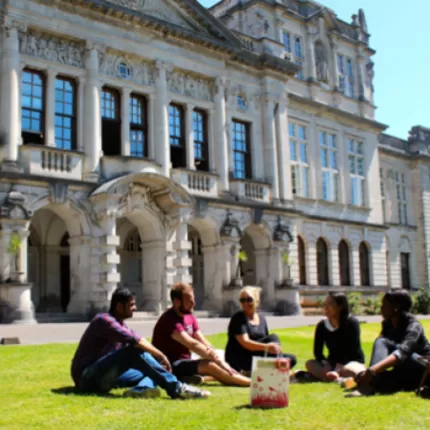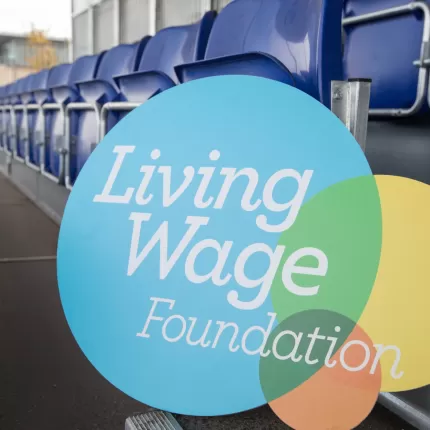Mercat Tours: Providing Secure Working Hours and Shifts in a Seasonal Industry
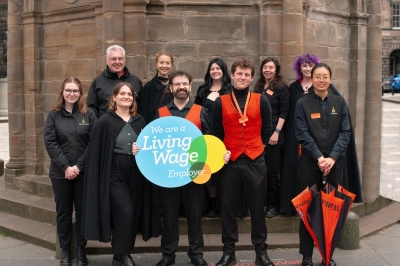
Award-winning walking tour business Mercat Tours are bucking a trend in an industry that is reliant on seasonal work; they’re both Living Wage and Living Hours accredited.
Based in Edinburgh, Mercat have been providing history and ghost tours for over 35 years. In 2017, they made the decision to accredit as a Living Wage Employer, and in 2024 they became the first Living Hours tourism company.
The Living Hours accreditation seeks to provide not just the security of a real Living Wage, but also to ensure that workers are provided with enough hours to make ends meet. The accreditation has three simple principles that employers must follow: at least four weeks’ notice of shifts, the right to a contract that accurately reflects the number of hours that they work,; and a guaranteed minimum of 16 hours’ work per week.
Kat, Managing Director of Mercat Tours, explains that, for them, Living Hours is just another way that they look after their employees:
“Becoming Living Hours accredited is a clear promise to the team on what they can expect when working with Mercat. They value a work/life balance, and so do we. Alongside paying the Real Living Wage, offering a profit-share bonus and income protection insurance, Living Hours is another way to demonstrate how we look after our team – that’s the Mercat Deal.”
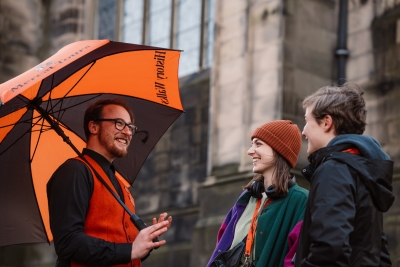
However, in an industry where temporary contracts and seasonal work is the norm, Mercat demonstrate a new way of working.
In 2022, 3.64 million people were employed in the travel and tourism sector in the UK, with many people on seasonal and temporary contracts. In fact, in 2016 the Office for National Statistics reported that just under 15% of all temporary contracts in the UK were issued to people working in the travel and tourism sectors. Temporary contracts, by their nature, are insecure work and do not offer adequate notice of shift work, or a minimum number of hours per week.
Kat acknowledges that this can be challenging when accrediting as a Living Hours Employer:
“Due to the nature of the tourism industry, there are some weeks in the year when the team work reduced hours, and some where they might work more – we make hay when the sun shines. This initially posed a challenge for applying for Living Hours accreditation, as the standard requires that team members are contracted for at least 16 hours’ of work a week (unless they request fewer).”
Kat and her team soon found a workaround, however:
“Our solution is that we use annualized hours contracts, where team members receive the same guaranteed average pay every month regardless of how many hours they have worked. This pay is reviewed quarterly to make sure team members aren’t in debt or credit, of course ensuring they are always paid for at least 16 hours a week. This means that whilst team members don’t have guaranteed hours each month, they do have guaranteed income.”
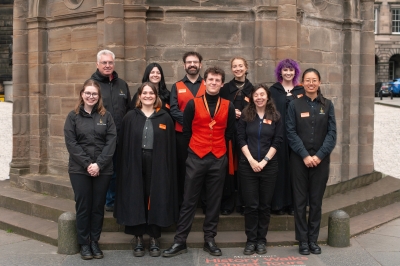
The process was relatively quick, Kat explains:
“It was a relatively quick process as we already had the ambition to increase notice of shifts from 2.5 weeks to 4 weeks, to support business planning and team wellbeing. So we formalised the rota process, collected opt-out statements from team members who wanted to work fewer than 16 hours a week, and within 6 weeks we were ready to apply. There were several team members who wanted to opt out of the 16 hours, largely working parents, students or those with other jobs.”
The impact is already being felt by Mercat employees. Caroline, part of the Mercat team shared:
“For me it helps to plan my life. I often have appointments for university or coursework to do so it helps me to plan around work without having to change appointments or swap shifts at short notice. I also like to be able to plan when I can see friends and family – I sometimes feel like I exist in a bit of a bubble juggling work and university at the moment so it is nice to know when I can have some social time.”
Rory, another team member agrees:
“Having a set rota with advance notice is really helpful. It lets me see ahead and enjoy a healthy balance of things in my life. I'm glad to have it!”
Kat is unequivocal in the benefits that the Living Hours accreditation can provide for the travel and tourism industry:
“Accreditation sends the team a clear message of what’s important to Mercat and how we operate. It’s a great way to formalise procedures that benefit our team and business, make us more efficient and profitable and, in turn, secure jobs.
We believe that tourism is the most inclusive and inspiring sector in which to develop a career. It holds the power to create diverse, dynamic teams that attract passionate people to work and equally supports communities to thrive. Living Hours accreditation can help draw people to this fantastic industry where ‘Tourism is Everyone’s Business – Where Everyone has a Place’.”
Find out how you can become Living Hours accredited here.


